- Binding : Hardcover
- Publisher : Taxmann
- Author : B.D. Chatterjee, Jinender Jain
- Edition : 9th Edition 2024
- Language : English
- ISBN-10 : 9789357784580
- ISBN-13 : 9789357784580
Taxmann’s Illustrated Guide to Indian Accounting Standards (Ind AS) by B.D. Chatterjee
₹3,995.00 Original price was: ₹3,995.00.₹2,996.00Current price is: ₹2,996.00.
Taxmann’s Illustrated Guide to Indian Accounting Standards (Ind AS) by B.D. Chatterjee – 9th Edition 2024. This book presents a thorough commentary on Indian Accounting Standards (Ind AS) and an analysis of the amended Schedule III of the Companies Act 2013. It addresses Ind AS implementation in India, highlighting its convergence with IFRS. It features numerous diagrams, visual aids, case studies, and practical examples. This book will be helpful for accounting professionals and students, providing extensive definitions, comparative analysis, etc.
10 in stock
Taxmann’s Illustrated Guide to Indian Accounting Standards (Ind AS) by B.D. Chatterjee – 9th Edition 2024.
Taxmann’s Illustrated Guide to Indian Accounting Standards (Ind AS) by B.D. Chatterjee – 9th Edition 2024.
Description
This book provides a comprehensive commentary on the Indian Accounting Standards (Ind ASs) & detailed analysis of amended Schedule III of the Companies Act 2013. It addresses the implementation and adaptation of Ind AS in India, reflecting their convergence with International Financial Reporting Standards (IFRS).
This book is an exhaustive commentary on Indian Accounting Standards, making it an essential resource for accounting professionals, students, and anyone seeking to understand and implement Ind AS in financial reporting.
The Present Publication is the 9th Edition, and the law stated in the book is amended up to 15th May 2024. It incorporates the Companies (Indian Accounting Standards) (Amendment) Rules, 2023. This book is authored by B.D. Chatterjee & Jinender Jain, with the following noteworthy features:
- [Simplified Process Flow Diagrams] The book includes numerous diagrams to help readers understand and comprehend the nuances of each Ind AS in a simplified and lucid language
- [Extensive Visual Aids] Over 200 process flow diagrams, charts, illustrations, and case studies are provided to analyse the Ind AS and its convergence with IAS/IFRS. These are updated with the latest notified amendments based on practical issues and questions
- [Definitions and Application Guidance] Critical chapters incorporate essential definitions and application guidance for better clarity
- [Detailed Comparative Analysis] The book offers a comprehensive comparison of Ind AS with amended Accounting Standards (AS).
- [Case Studies] Practical case studies on the disclosure of accounting policies are included to provide real-world examples
- [Global Perspective] Each chapter highlights the convergence of Ind AS with IFRS, providing a global context
- [References] The book references notified texts on Ind AS and AS published by the Ministry of Corporate Affairs, ICAI publications, and adaptations from ACCA UK
- [Additional Content] The 9th Edition also includes short questions and answers, over 150 multiple-choice questions on Ind AS, and additional illustrations based on practical issues and questions
The detailed contents of this book are as follows:
- Financial Reporting in India and Conceptual Framework for Financial Reporting
- Provides an overview of financial reporting practices in India
- Discusses the conceptual framework that underpins financial reporting
- Explains the objectives, qualitative characteristics, and limitations of financial statements
- Indian Accounting Standards (Ind AS) Applicability and Summary
- Details the applicability of various Ind AS to different types of entities
- Summarizes each of the Indian Accounting Standards, offering a snapshot of their key points
- Ind AS 1 – Presentation of Financial Statements and Schedule III
- Focuses on the guidelines for presenting financial statements
- Explains the requirements of Schedule III of the Companies Act
- Emphasizes the structure and content of financial statements, including balance sheets, profit and loss statements, and notes
- Ind AS 2 – Inventories
- Provides standards for accounting and reporting inventories
- Covers measurement, cost determination, and recognition of inventories
- Discusses the impact of inventories on financial statements
- Ind AS 7 – Statement of Cash Flows
- Guides the preparation and presentation of cash flow statements
- Explains the classification of cash flows into operating, investing, and financing activities
- Highlights the importance of cash flow information in financial analysis
- Ind AS 8 – Accounting Policies, Changes in Accounting Estimates, and Errors
- Sets out the criteria for selecting and changing accounting policies
- Addresses how to account for changes in accounting estimates
- Details the correction of errors in financial statements
- Ind AS 10 – Events Occurring After the Reporting Period
- Explains the treatment of events that occur after the reporting period but before the financial statements are authorized for issue
- Differentiates between adjusting and non-adjusting events
- Ind AS 12 – Income Taxes
- Provides guidance on the accounting treatment of income taxes
- Discusses current and deferred tax, tax bases, and temporary differences
- Explains the recognition of tax assets and liabilities
- Ind AS 16 – Property, Plant, and Equipment
- Focuses on the accounting for property, plant, and equipment
- Covers recognition, measurement, depreciation, and derecognition of assets
- Discusses revaluation models and impairment testing
- Ind AS 17 – Leases
- Provides standards for accounting for lease agreements by lessees and lessors
- Covers the classification of leases as finance or operating leases
- Explains the recognition, measurement, and disclosure requirements
- Ind AS 19 – Employee Benefits
- Addresses the accounting for employee benefits, including short-term and long-term benefits
- Discusses post-employment benefits, termination benefits, and other long-term benefits
- Explains the recognition and measurement of defined benefit and defined contribution plans
- Ind AS 20 – Accounting for Government Grants and Disclosure of Government Assistance
- Sets out the principles for recognizing and measuring government grants
- Provides guidelines for the disclosure of government assistance
- Discusses the impact of grants on financial performance
- Ind AS 21 – The Effects of Changes in Foreign Exchange Rates
- Provides standards for accounting for foreign currency transactions
- Covers the translation of financial statements and the impact of exchange rate changes
- Discusses the recognition of foreign exchange gains and losses
- Ind AS 23 – Borrowing Costs
- Sets out the accounting treatment of borrowing costs
- Explains when borrowing costs should be capitalized as part of the cost of a qualifying asset
- Discusses the calculation and recognition of borrowing costs
- Ind AS 24 – Related Party Disclosures
- Requires the disclosure of related party relationships, transactions, and outstanding balances
- Aims to provide transparency regarding the influence of related parties on financial statements
- Ind AS 27 – Separate Financial Statements
- Provides guidance on the preparation of separate financial statements for entities with subsidiaries, associates, or joint ventures
- Explains the accounting policies to be applied in separate financial statements
- Ind AS 28 – Investments in Associates and Joint Ventures
- Covers the accounting for investments in associates and joint ventures using the equity method
- Discusses the recognition, measurement, and disclosure of such investments
- Ind AS 29 – Financial Reporting in Hyperinflationary Economies
- Provides guidelines for entities operating in hyperinflationary economies
- Explains the adjustments required to financial statements to reflect the effects of hyperinflation
- Ind AS 32 – Financial Instruments | Presentation
- Sets out the principles for the presentation of financial instruments as liabilities or equity
- Covers compound financial instruments and the classification of interest, dividends, losses, and gains
- Ind AS 33 – Earnings per Share
- Provides guidance on the calculation and presentation of earnings per share (EPS)
- Explains the requirements for basic and diluted EPS
- Ind AS 34 – Interim Financial Reporting
- Sets out the principles for recognizing and measuring items in interim financial reports
- Explains the requirements for the minimum content of an interim financial report
- Ind AS 36 – Impairment of Assets
- Provides guidelines for the assessment of asset impairment
- Covers the recognition and measurement of impairment losses and reversals
- Discusses the cash-generating unit (CGU) concept
- Ind AS 37 – Provisions, Contingent Liabilities, and Contingent Assets
- Sets out the accounting treatment for provisions, contingent liabilities, and contingent assets
- Explains the criteria for recognizing and measuring provisions
- Ind AS 38 – Intangible Assets
- Provides standards for the recognition and measurement of intangible assets
- Covers internally generated intangible assets and their amortization
- Ind AS 40 – Investment Property
- Provides guidelines for the recognition, measurement, and disclosure of investment property
- Explains the use of fair value and cost models
- Ind AS 41 – Agriculture
- Sets out the accounting treatment for agricultural activity
- Covers the recognition and measurement of biological assets and agricultural produce
- Ind AS 101 – First-time Adoption of Indian Accounting Standards
- Provides guidance for entities adopting Ind AS for the first time
- Explains the transition requirements and exemptions
- Ind AS 102 – Share-based Payment
- Provides standards for the recognition and measurement of share-based payment transactions
- Covers both equity-settled and cash-settled share-based payments
- Ind AS 103 – Business Combinations
- Sets out the accounting principles for business combinations
- Explains the recognition and measurement of acquired assets, liabilities, and goodwill
- Ind AS 104 – Insurance Contracts
- Provides guidance on the accounting treatment of insurance contracts
- Covers the recognition and measurement of insurance liabilities
- Ind AS 105 – Non-current Assets Held for Sale and Discontinued Operations
- Sets out the requirements for the classification, measurement, and presentation of non-current assets held for sale and discontinued operations
- Ind AS 106 – Exploration for and Evaluation of Mineral Resources
- Provides standards for the exploration and evaluation of mineral resources
- Covers the recognition and measurement of exploration and evaluation expenditures
- Ind AS 107 – Financial Instruments | Disclosures
- Requires disclosures about the significance of financial instruments and the nature and extent of risks arising from those instruments
- Ind AS 108 – Operating Segments
- Provides guidelines for the disclosure of information about operating segments
- Explains the criteria for identifying reportable segments
- Ind AS 109 – Financial Instruments
- Sets out the principles for the recognition, measurement, and classification of financial instruments
- Covers the impairment of financial assets and hedge accounting
- Ind AS 110 – Consolidated Financial Statements
- Provides standards for the preparation and presentation of consolidated financial statements
- Explains the principles for identifying control and preparing consolidated financial statements
- Ind AS 111 – Joint Arrangements
- Provides guidelines for the accounting of joint arrangements, including joint operations and joint ventures
- Ind AS 112 – Disclosure of Interests in Other Entities
- Requires disclosures about an entity’s interests in subsidiaries, joint arrangements, associates, and unconsolidated structured entities
- Ind AS 113 – Fair Value Measurement
- Provides a framework for measuring fair value and requires disclosures about fair value measurements
- Explains the hierarchy of fair value inputs
- Ind AS 114 – Regulatory Deferral Accounts
- Sets out the accounting requirements for regulatory deferral accounts
- Applies to entities that are subject to rate regulation
- Ind AS 115 – Revenue from Contracts with Customers
- Provides comprehensive guidelines for recognizing revenue from contracts with customers
- Explains the five-step model for revenue recognition
- Ind AS 116 – Leases
- Provides comprehensive guidance on lease accounting
- Covers the recognition, measurement, presentation, and disclosure of leases
- Short Questions and Answers on Ind AS
- Offers a collection of short questions and answers for quick reference and review
- Multiple Choice Questions on Ind AS
- Includes multiple-choice questions to test knowledge and understanding of Ind AS
Details
| Publisher | |
|---|---|
| Language | |
| Author |
Be the first to review “Taxmann’s Illustrated Guide to Indian Accounting Standards (Ind AS) by B.D. Chatterjee” Cancel reply
Related products
Transfer Pricing


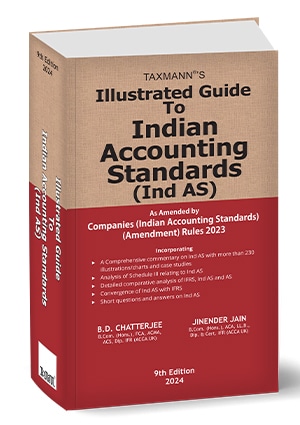
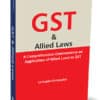
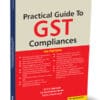
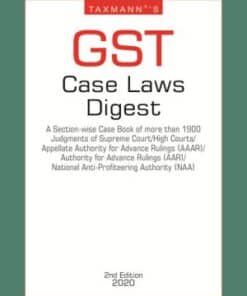
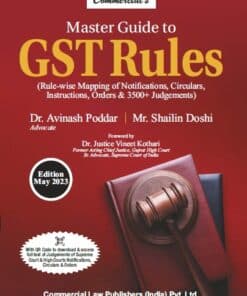
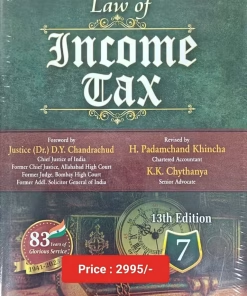
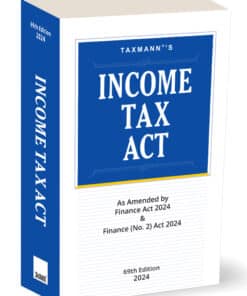
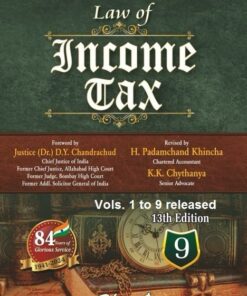
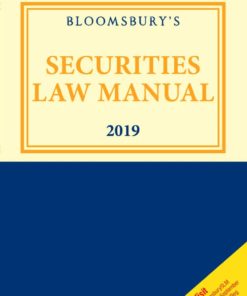
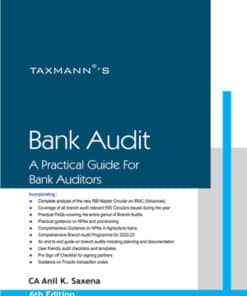
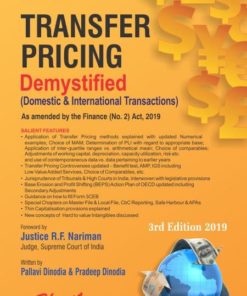
Reviews
There are no reviews yet.